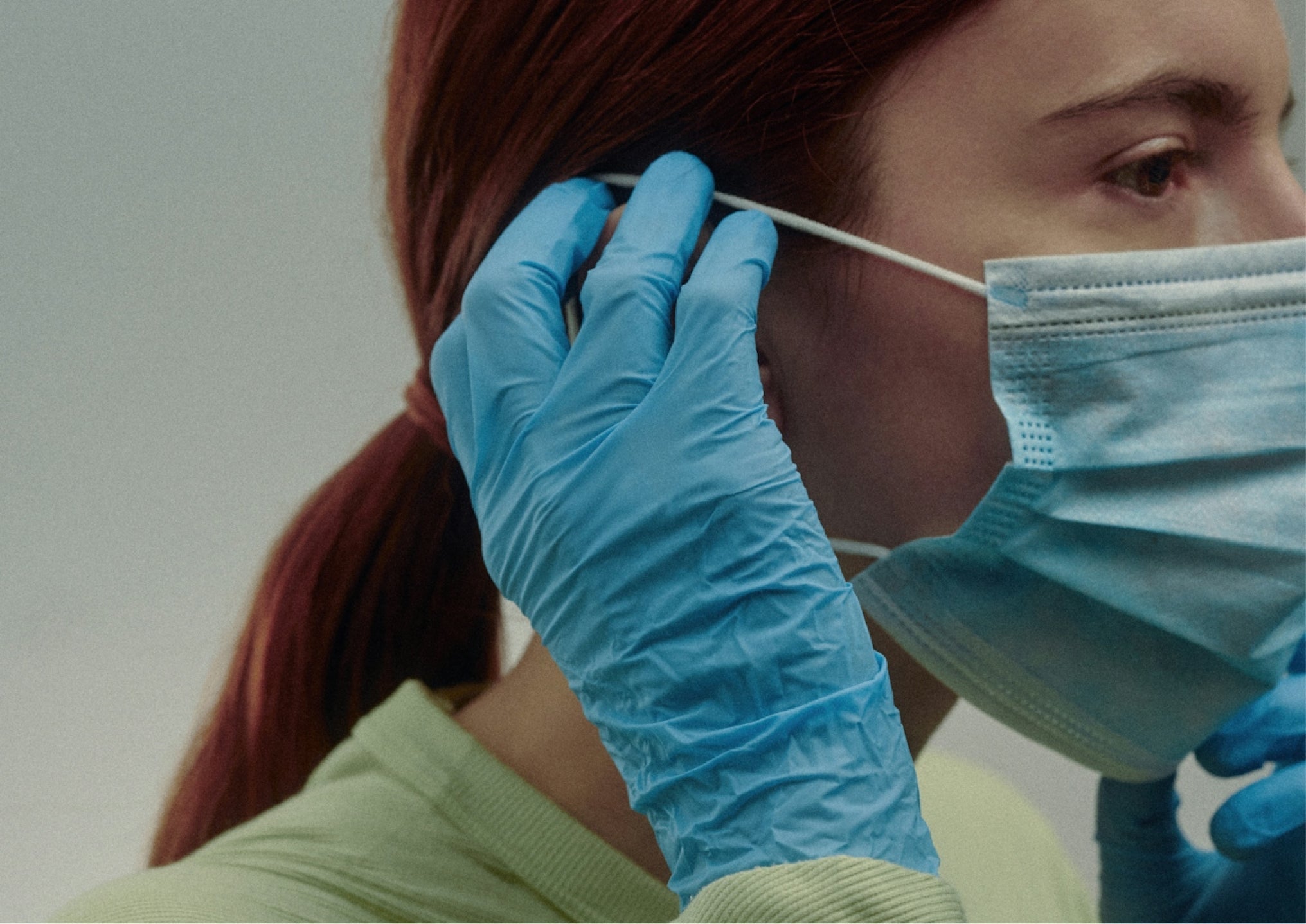Are you thinking about taking the next steps on your fertility journey and considering IVF? We know it can seem overwhelming, intimidating and even a little scary - we’re here to help. You’re not alone, and you’re not wrong in feeling those things. There’s a reason we believe IVF should be the last step in your fertility treatment pathway – it’s invasive, it’s gruelling, and for so many people it can be both really exciting, and a bit sh*t when you’re going through it.
To help you feel more prepared for your first appointment, and for your IVF treatment in general, we asked Sandy - our Lead Fertility Coach and Embryologist, with over a decade of experience - to put together an article that will help you understand what to expect, what are the red and green flags to look out for when choosing a clinic, and what questions you may want to ask in your initial consultation. She’s really gone to town here, so we hope it helps.
In this article:
Section 1: What can you expect in your first appointment?
Section 2: What questions should you be asking in your first appointment?
Section 3: IVF clinic green flags
Section 4: IVF clinic red flags
Section 5: Resources for more information
What can you expect from your first appointment?
During your first visit/initial consultation with a fertility specialist, they will review your medical history and any previous investigations or treatments you may have had. They may ask questions related to your menstrual cycle, reproductive health and sexual health. This could include if you have painful periods, if you experience pain during intercourse or if you’ve ever had a sexually transmitted infection. This will help them determine what investigations need to be performed to see if there’s an underlying cause of infertility/delay in getting pregnant. Here’s what you should do to prepare:
bring results of any previous investigations
make notes of any medications you or your partner are taking
make a note of your/your partner’s last period and any symptoms experienced
What questions should you be asking in your first appointment?;
We’ve really gone to town here to help you feel as prepared as possible:
What additional investigations might I need before proceeding with treatment?
What treatment option is the best for me and why?
What are your success rates for patients my/my partner’s age?
What could my chances of success be based on my age/fertility background (to help manage expectations)?
What can we do to prepare to increase our chances of success?
What additional support do you offer (nutritional, holistic, counselling)?
How long until you can start treatment/are there wait lists?
What time of day are appointments typically offered (to help balance work/life)?
Green flags 🤩 (great signs!)
Free counselling. Going through any type of TTC journey can be strenuous, clinics that offer free counselling are at the top of our list.
Friendly staff. Your experience in the clinic will be based on the outcome of your treatment, but also how you felt when going through treatment. Kind, caring and knowledgeable staff can make a huge impact.
Transparent pricing. Treatments and treatment add-ons can get expensive. If the clinic provides a clear and detailed estimate, consider this a huge green flag.
Good success rates. Success rates should be used as a rough guide and not a prediction, but if the clinic is consistent with the national average, and transparent about their success rates, this is a great start.
Good patient rating. There are multiple ways to check this: the HFEA, Fertility Mapper and Google reviews are a good starting point.
Red flags 🚩 (things to watch for)
Poor communication. Going through treatment requires a lot of communication with your clinic and care team. When this is lacking, it can make you feel anxious, cause unnecessary stress or concerns about the outcome of your treatment, which doesn’t help anyone get pregnant.
Your care team dismisses your concerns. It’s easy to go down a Google rabbit hole and try to figure out what’s going on in your body. Your care team shouldn’t feel threatened by this, instead, they should act as a filter and a guide so you know what to trust and not trust online.
Your care team feels distracted. IVF clinics can be busy but long delays or multiple interruptions during appointments can be a sign of issues with the number of staff and subsequently the quality of the care you’ll receive.
No preparation before starting treatment. We’ve had customers tell us that clinics tell them to “Google IVF process” to prepare. Big red flag. Fertility care should be a collaboration between your clinic and you as a patient.
If you want more information than the clinic is giving you, where can you go?
The UK charity Fertility Network UK. They have free resources and guides: https://fertilitynetworkuk.org/learn-about-fertility/treatment/
The HFEA (human fertilisation and embryology authority). They’re the regulatory body in the UK and gather data from clinics for publications (think pregnancy rates and trends) and also offer support resources: https://www.hfea.gov.uk/
Béa. We may offer a home insemination treatment, but we’ve also created guides and free resources for a range of different fertility conditions or treatment types to support all family forming ways: https://beafertility.com/blogs/fertility-library/in-vitro-fertilisation-ivf
Understanding IVF treatment add-on options
When going through IVF, you may be offered a treatment add-on to improve your chances of having a baby. Treatment add-ons are supplementary treatments that can be performed during your IVF cycle. For most patients, having a routine cycle of fertility treatment is effective without using any treatment add-ons. As treatment add-ons come at an additional cost, you are not only a patient, but you also become a consumer paying for parts of your treatment. This can be really difficult to navigate, so we’ve put together this guide to help you.
Which treatment add-ons are available?
Assisted hatching
Assisted hatching is a laboratory process where embryologists use a laser, chemicals or a needle to create a hole in the zona, the outer layer of the embryo. Assisted hatching is meant to encourage the process of implantation in the uterus. This may be offered if there’s an indication of the embryos having thick zonas, or in cases where multiple embryo transfers have taken place without implantation. It is safe to perform on the embryos.
The HFEA says: "We cannot rate the effectiveness of this add-on at improving the treatment outcome as there is insufficient moderate/high quality evidence."
Elective freeze all
An elective freeze all cycle is a cycle of IVF where an embryo transfer does not take place; instead, all good quality embryos are frozen and an embryo transfer is planned for a different cycle. The procedure is safe.
The HFEA says: "On balance, it is not clear whether this add-on is effective at improving the treatment outcome."
Endometrial receptivity assay (ERA)
ERA is a test that is meant to find the optimal time for an embryo to be transferred into a woman’s uterus for the embryo to implant, known as the window of implantation. ERA involves taking a biopsy of the endometrial lining of the uterus and testing the tissue to determine the optimal window to hopefully improve the chances of a successful implantation.
The HFEA says: "There are potential safety concerns and/or, on balance, findings from moderate/high quality evidence shows that this add-on may reduce treatment effectiveness."
Endometrial scratch
Endometrial scratching is a procedure performed by your doctor where the lining of the uterus is scratched using a small sterile plastic tube. The theory is that this procedure triggers the body to repair the site of the scratch, making the womb lining more receptive to an embryo implanting. There is a small risk of infection as it is an invasive procedure, but it is otherwise considered safe.
The HFEA says: "On balance, it is not clear whether this add-on is effective at improving the treatment outcome."
EmbryoGlue
EmbryoGlue is a hyaluronate enriched medium that is used at the time of embryo transfer. It contains hyaluronan, a component which is usually present during implantation, and the theory is that the enriched medium promotes implantation, to improve chances of having a baby. EmbryoGlue is a safe treatment.
The HFEA says: "On balance, it is not clear whether this add-on is effective at improving the treatment outcome."
Immunological tests and treatments
One theory widely shared for unexplained infertility is that the cause may be the patient’s immune system. A range of tests and treatments may be offered, but the treatments involved could have a serious impact on the patient’s immune system. Because there is no evidence that any immune cells ever do prevent a pregnancy, there is no reason for any patient without an immunological disease to take these therapies.
The HFEA says: "There are potential safety concerns and/or, on balance, findings from moderate/high quality evidence shows that this add-on may reduce treatment effectiveness."
Intracytoplasmic morphologic sperm injection (IMSI)
IMSI is a sperm selection method used in ICSI. The technique involves using a microscope to view sperm under very high magnification, over x6000, compared to standard ICSI which uses x200 and x400. This is a safe add-on that allows embryologists to view detailed images of sperm. Scientific reviews suggest that IMSI could be beneficial in specific situations such as previously failed ICSI attempts.
The HFEA says: "We cannot rate the effectiveness of this add-on at improving the treatment outcome as there is insufficient moderate/high quality evidence."
Intrauterine culture
Intrauterine culture uses a device that allows the patient to carry their embryos in the uterus for several hours during early development before the embryos can be transferred or frozen. The theory is that the embryos will develop better in a more natural environment as opposed to an incubator in the laboratory. There are no known risks to the treatment.
The HFEA says: "We cannot rate the effectiveness of this add-on at improving the treatment outcome as there is insufficient moderate/high quality evidence."
Physiological intracytoplasmic sperm injection (PICSI)
PICSI is a technique used to select sperm to use for ICSI treatment. It involves placing sperm with hyaluronic acid (HA), a natural compound found in the body. PICSI identifies sperm that can bind to HA and these sperm are selected to be injected. It is a non-invasive test used on sperm prior to ICSI and considered to be safe.
The HFEA says: "On balance, the findings from moderate/high quality evidence shows that this add-on has no effect on the treatment outcome."
Pre-implantation genetic testing for aneuploidy (PGT-A)
PGT-A involves checking embryos for abnormalities in the number of chromosomes. Embryos with an abnormal number of chromosomes have less chance of developing into a baby and carry an increased risk of miscarriage. PGT-A identifies embryos that are unsuitable for fertility treatment. Embryologists perform a biopsy on the embryos to remove cells that can be tested for any chromosomal abnormalities. In some cases, the cells may not yield a result, or have a mix of both normal and abnormal chromosomes. There is a small risk that the biopsy can cause damage to the embryo, but it is otherwise considered safe. Some studies show that it can reduce the risk of miscarriage in older patients.
The HFEA says: "There are potential safety concerns and/or, on balance, findings from moderate/high quality evidence shows that this add-on may reduce treatment effectiveness" for improving chances of having a baby.
The HFEA also says: "On balance, findings from high quality evidence shows this add-on is effective at improving the treatment outcome" for reducing the chances of miscarriage.
Time-lapse imaging
Time-lapse imaging is available through an incubator with a built-in camera that takes thousands of images of embryos while they’re growing. It allows for uninterrupted culture and it gives a continuous view of each embryo as it develops, rather than just viewing them once a day. Time-lapse incubation and imaging is safe and does not carry any additional risks to the embryos in culture or children born from them.
The HFEA says: "On balance, the findings from moderate/high quality evidence shows that this add-on has no effect on the treatment outcome."
Artificial egg activation
Artificial egg activation is a laboratory process where embryologists use a chemical called calcium ionophore in order to attempt to improve fertilisation rates. This method may be offered if there has been a previous cycle where fertilisation has failed with ICSI. There’s not enough information to show if the procedure carries a risk of abnormal embryo development.
The HFEA have removed artificial egg activation as it should only be used in specific circumstances.



















